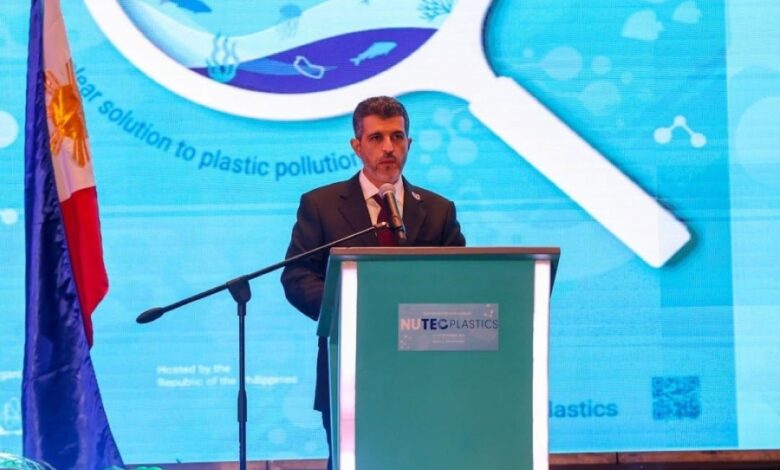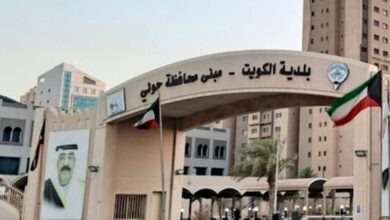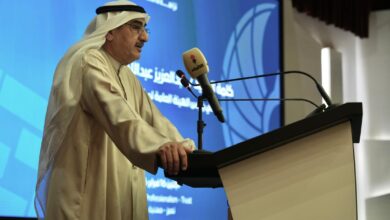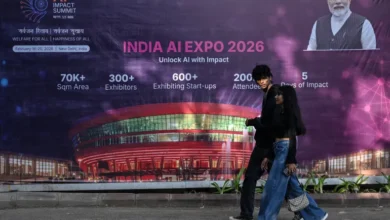KISR highlights Kuwait’s global leadership in nuclear technologies
. . . to combat plastic pollution

The Director-General of the Kuwait Institute for Scientific Research (KISR), Dr. Faisal Al-Humaidan, affirmed that Kuwait’s participation in the high-level international forum on nuclear technologies for addressing plastic pollution reflects its strong partnership with the International Atomic Energy Agency (IAEA).
He noted that KISR scientists — through pioneering research and strategic international collaborations—have developed unified protocols, now used in more than 75 countries, to measure and combat the risks of microplastics in oceans, soil, and air.
In a press statement issued today following his participation as head of the Kuwaiti delegation at the forum held in the Philippines, Al-Humaidan said Kuwait’s leadership is evident in its pivotal role in the IAEA’s NUTEC Plastics initiative, which employs nuclear technology to monitor marine plastic pollution, reports Al-Rai daily.
He emphasized that KISR is not merely a participant but a key partner and collaborating center sharing expertise and resources with member states.
He added that KISR has strengthened Kuwait’s engagement in global environmental issues through its research leadership and contributions to international standards for monitoring and understanding microplastic contamination.
Among the institute’s major achievements, Al-Humaidan highlighted the development of a standard reference material shared with the International Agency for the Validation of Laboratory Results. This material was used in comparative testing across 55 countries, enhancing the credibility of global measurements that inform international policy.
He stressed that KISR’s role extends beyond protecting Kuwait’s environment and food security, contributing significantly to global sustainability efforts and reinforcing Kuwait’s standing as a hub of scientific innovation.
“Our work has evolved from local monitoring to setting global benchmarks,” he said, noting that KISR’s protocols for identifying and quantifying microplastics have been adopted across the Asia-Pacific region and beyond.
Al-Humaidan also pointed to the publication of more than 26 influential research papers in leading international journals over the past five years — widely cited worldwide — which has strengthened Kuwait’s reputation as a center of excellence in microplastics research.
He expressed appreciation for the support of the Kuwaiti Ministry of Foreign Affairs, Kuwait’s Permanent Mission to the United Nations in Vienna, and the Kuwaiti Ambassador to the Philippines, H.E. Mishari Al-Nibari, for their prompt cooperation and assistance to the delegation.












